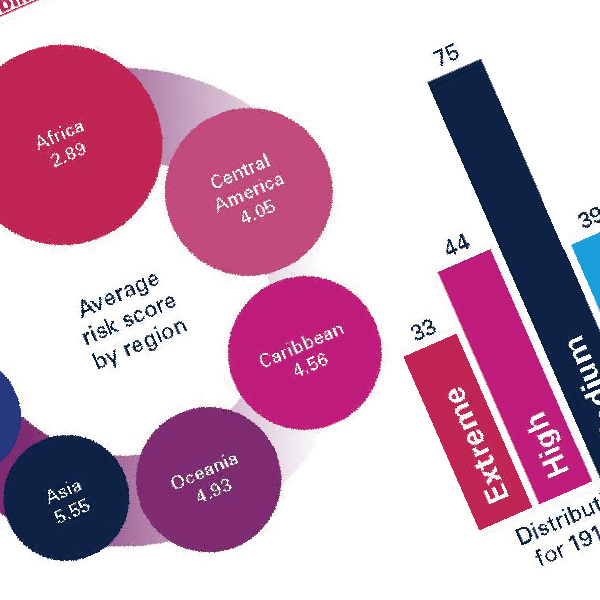How Certifications Help Companies and Consumers Verify Climate Action and Advance Sustainability
April 6, 2021
1% for the Planet, B Corp, and Climate Neutral Nonprofits Provide Frameworks for Innovation and Collaboration
The accelerating climate crisis has more people looking for ways to make a positive difference and reduce their impact on the environment — and more businesses realizing that a commitment to sustainability can benefit the bottom line. While many companies have a genuine desire to do good, some fall into the greenwashing trap — touting their climate bonafides but continuing to do environmental harm — through misdirection, misinformation, or missed opportunities.
Several certification organizations have emerged to help companies and consumers identify the real-deal practices and products that can mitigate climate change and even have a positive effect on the environment. Leaders of three of these certification organizations recently discussed how their nonprofits work with businesses to advance climate action and sustainability — and how their groups coexist and help businesses collaborate and innovate together to protect the future of the Earth. Speakers during the “This Is Good Business” virtual as part of the See Change Sessions were:
- Kate Williams, CEO of 1% for the Planet, a global network founded in 2002 that inspires businesses and individuals to make daily commitments and changes to support environmental nonprofits through three main values: advising on aligned giving strategies, storytelling for impact, and sharing the 1% values and logo on a product or service.
- Ben Anderson, CEO of B Lab U.S. & Canada, the nonprofit organization established in 2006 that oversees Certified B Corporations. Certification involves three main components: verified social and environmental performance through the B Impact Assessment, visible and transparent assessment results, and required legal accountability to stakeholder governance through benefit corporation status or a similar structure.
- Austin Whitman, co-founder and CEO of Climate Neutral, which certifies companies by helping them measure, offset, and reduce offset their carbon footprint. Founded in 2019, Climate Neutral provides companies with a simple and actionable roadmap to reduce carbon and enables consumers so they know which brands are pursuing a zero-carbon future.

The three leaders discussed how each certification is unique but also complementary, and how they help businesses build a framework for positive impact and set goals for the future — while also helping consumers find companies acting for environmental good. Below, B The Change has compiled edited and condensed highlights from their discussion.

The Climate Justice Playbook for Business
This practical guide includes information to help business leaders understand the intersection of climate action and social justice and advance a justice-centered approach to climate action.
Why Businesses Should Pursue Climate Certifications
Kate Williams: It’s great to have this opportunity to talk shop with people who are thinking about many of the same things. These certifications are not just for products, not just for consumer packaged goods, where someone can pick it up off the shelf and look at the logo on the packaging. As consumers are getting more clear about the fact that they want to address climate change and have their dollars drive solutions, they’re thinking about services as well. One of the things that I think is really important for people to understand about certification is that it can also extend to services.
In the case of 1% for the Planet, you can choose your life insurance, you can choose your bank, you can choose a brand and marketing agency, you can choose a fitness trainer, all of whom are giving back their 1% and are certifying that annually. So it’s more than just a logo to put on a product label. Every one of your dollars spent at any of the different kinds of things you spend your money on can drive change.
Like B Corps, companies in our network are in numerous different industries. We have no more than 10% of our network in any single industry. Early on it was definitely more focused on outdoor and then certainly consumer goods, and it really has spread from there.

Earth-Friendly Products and Services from 1% for the Planet B Corps
When you support a Certified B Corporation, you already know you’re supporting a company that values people and the planet. The B Corps in this guide take it one step further — they are also part of the 1% for the Planet initiative, which means they give 1% of their profits to approved environmental nonprofits.
Ben Anderson: Three myths come to mind about B Corp Certification. One is that it’s rigid; we have a standard system in the B Impact Assessment that looks at social, environmental, worker governance, and customer practices, and companies have to get to at least 80 points out of 200 available points. You still need to be measuring the whole and performing in different areas, but there are lots of ways up that certification mountain.
The second is that the certification is the destination. What we see in our community is that when people have a system for measuring, they want to improve. These are guardrails for running the business and aligning the value system that you want to have to build community and take collective action. That’s where we’re seeing a lot of power. It’s really like a waypoint in your journey.
The last thing is that the certification will do the work for you. You’re joining a platform to connect, create community, and then take collective action. Companies that put something in get much more out of it. Often I get asked the question, “Who’s your competition?” All of us talking today are collaborators, not competitors, trying to work together and collaborate toward systems change.
Austin Whitman: That’s a great point, Ben, about community. It’s something that we hear a lot as people are trying to figure out how to start working on carbon neutrality. The thing that really appeals to them about becoming part of the certified community is that they’ll do it once and then over the course of the year, they’ll interact with other companies and they’ll learn and trade ideas. And a year later, they’ll find themselves re-certifying with a whole lot more information and a whole lot more understanding of what their share of the problem is and what to do about it. The community aspect has been really something that I didn’t fully appreciate when we launched it. It’s tempting to focus on just the technical aspects, but there really is so much value to having companies working together.
We encourage people to think of these certifications as highly complementary, because there are many different opportunities for businesses to contribute to solutions. Certifications are becoming the language of sustainability in the sense that the long reports are hard to digest, but a certification sends a very clear signal and a series of labels alongside each other sends a signal that the company is thinking about all of its different types of impact.
Williams: Those are just such great points from both of you that pull it together. Each company has the opportunity to craft the story that they want to tell about how they’re making an impact. There’s a real opportunity too for companies creating their story around how they’re a 1% member who’s giving back and part of their giving is going to their B Corp Certification, because that’s an important way that they’re accomplishing other goals. They’re also addressing their climate change concerns and goals through a Climate Neutral membership. So that becomes that company’s story and how they choose to do their giving.
How Businesses Can Use Certifications to Launch Their Climate Action
Anderson: My biggest piece of advice is just carve out two hours on a Friday afternoon — set it up recurring for three weeks in a row — and just dive in, make the time, give yourself permission to explore B Corp Certification. Our assessment is a free tool used by over 100,000 businesses. There’s a lot that I know any business leader can learn just from diving in, opening up the hood, going in and checking it out.
Whitman: We were inspired by B Lab’s assessment tool to make one part of our carbon footprinting tool available on the web. So someone can just go onto our website and initially get an estimate of their carbon footprinting, and that’s eye-opening for a lot of people. People just sort of think, “Well I don’t make products, so I don’t have a carbon footprint” or “I just figured my electricity usage was my only source of my carbon emissions.”
The commonality in how the three of us are looking at this is a very simple framework for understanding your business a little bit better, which can really lead to more significant impact. The way that it transforms how people think about their own businesses is incredibly powerful.
Williams: Our planet and our people need us to take action. There’s a great opportunity for business to lean in to taking that action now. So in addition to prioritizing those two-hour chunks on Friday afternoon, like Ben suggested, recognizing and asking yourself, “What could possibly be more important than figuring out how I can align my business with the needs of our planet and our people right now?” That can feel overwhelming, but that’s where these certification communities come in because it can break it down to size and give you that pathway to start taking action.
Sign Up for our B The Change Newsletter
Read stories on the B Corp Movement and people using business as a force for good. The B The Change Newsletter is sent weekly.